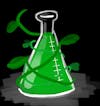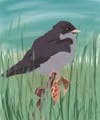Ask Ms. Scientist: Mickey Mouse measles and runny nose weather
Dear Ms. Scientist,
Use the fields below to perform an advanced search of The Daily Cardinal's archives. This will return articles, images, and multimedia relevant to your query. You can also try a Basic search
803 items found for your search. If no results were found please broaden your search.
Dear Ms. Scientist,
UW-Madison recently completed its remodels on a space for advising, studying, tutoring and events in lower Steenbock Library, according to a Friday WISCIENCE release.
The American Academy of Political and Social Science awarded UW-Madison Chancellor Rebecca Blank with the Daniel Patrick Moynihan Prize, according to a Wednesday UW-Madison release.
Researchers at UW-Madison and the Massachusetts Institute of Technology recently developed a collaborative project to develop new ways of integrating robots into human workforces, according to a university press release.
Best of Music
UW-Madison professor of physics, Francis Halzen, received the American Ingenuity Award for his work with IceCube, a South Pole neutrino observatory.
With our current level of understanding of the processes of the human brain, attempting to diagnose, treat and identify issues of the mind can be as difficult as launching an expedition into outer space. Just as we have developed many tools over the years to expand our knowledge of the universe, our methods of examination of the interior realm of the brain have similarly been improved upon.
Antibiotic use in the livestock industry greatly varies on the animal industry and the farm. Much of the controversy is over the use of subtherapeutic levels where antibiotics are not used for treating sick animals, but instead routinely given at low doses.
When I walked into the WISCIENCE office on Henry Mall, I wasn’t surprised to see a giant glass aquarium filled with potted plants basking in the glow of a U.V. light. After all, WISCIENCE stands for Wisconsin Institute for Science Education and Community Engagement. Thus, I was both pleased and unsurprised to discover that it took its biological responsibility very seriously, as evidenced by the plants. As the door behind me closed on a frigid winters day, I refrained from throwing myself under the light and instead, made my way to the office of Janet Branchaw, the director of WISCIENCE.
University of Wisconsin-Madison professor of chemistry, Shannon Stahl, received one of the five Presidential Green Chemistry Challenge Awards from the U.S. Environmental Protection Agency for his work with aerobic oxidations. Green chemistry concerns the reduction or elimination of hazardous wastes through specifically researched products or processes. It represents an effort toward providing environmental benefit via cleaner air and water through toxic waste elimination. The award was created by the EPA to recognize novel green chemistry.
One of the great mysteries of modern science has been how when bacteria congregate in small numbers, they are relatively innocuous. However, when the amount of bacteria grows, it is as if a switch goes on and they go from being a clump of innocuous bacteria to synchronized, lethal killers.
Dear Ms. Scientist,
A UW-Madison neuroscience program recently won a national annual award, earning the title of top graduate program in the country for 2014.

UW-Madison computer scientists and medical researchers recently collaborated to create an “unprecedented” learning simulator tool for surgical students.

“What would it do for the birds?” This simple question spurred scientists from the University of Wisconsin-Madison and the Wisconsin Department of Natural Resources to investigate whether it’s possible to grow economically viable amounts of biomass to generate bioenergy and, at the same time, provide habitat for bird populations, including rare grassland birds.
The United States has been one of the world’s leading countries in terms of scientific innovation throughout the past few decades. This would not be possible without the over $400 billion our government invested in research and development grants. It is no surprise that the University of Wisconsin-Madison is a major contender for this money as it is one of the nation’s top research universities with an over $2 billion endowment in the year of 2013.
While searching for ways to fill a gap year before medical school, University of Wisconsin-Madison alumnus and aspiring physician Jeff Mahlum never imagined he'd find such a perfect fit in the Center for Patient Partnerships' patient advocacy program.
As we all know, the annual gravity savings came into effect over the weekend. All over the world, people are adjusting to the remarkably different way of life that comes with a significant change in the force that holds us all to Earth. Right here in Madison, things have been completely turned upside down by this odd natural phenomenon.